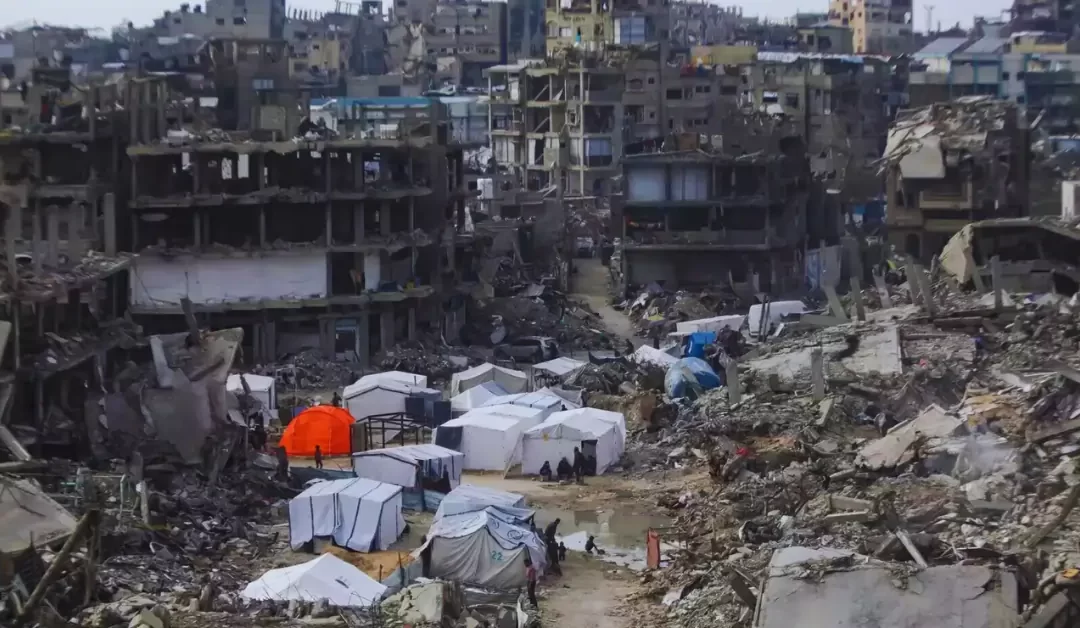According to the latest news, rebuilding Gaza will require an estimated $53.2 billion over the next decade. The findings, released by the United Nations, European Union, and the World Bank, highlight the massive destruction caused by Israel’s 15-month-long war on the enclave. A significant portion of the funds will be allocated to restoring infrastructure, residential housing, and critical services.
The Impact of War on Gaza’s Economy and Society
The economic news updates indicate that Gaza’s economy has contracted by 83%, with more than 95% of hospitals now non-functional. The assessment, covering the period from October 8, 2023, to October 8, 2024, estimates $49 billion in physical damage and an additional $19.1 billion needed to recover from social and economic losses. Essential sectors such as health, education, commerce, and industry have been severely affected.
Housing and Infrastructure Face Devastation
The latest news reveals that housing accounted for 53% of the total destruction, with over 292,000 homes either damaged or destroyed. More than half of the total rebuilding cost—approximately $29.9 billion—will be required to restore critical infrastructure. The removal of millions of tons of rubble and unexploded ordnance will also take years, delaying full reconstruction efforts.
Uncertainty Surrounding Recovery Efforts
Despite the urgent need for rebuilding, economic news updates suggest that conditions remain unstable due to a fragile ceasefire between Israel and Hamas. Israeli Prime Minister Benjamin Netanyahu has not ruled out further military actions, adding uncertainty to Gaza’s future governance and long-term stability. Without a clear post-war strategy, large-scale reconstruction efforts remain challenging.
Regional Efforts for a Sustainable Reconstruction Plan
Arab nations, led by Egypt, are actively working on a comprehensive recovery plan that ensures Gaza’s residents remain in their homeland. Egypt’s foreign minister recently announced a multi-phase reconstruction proposal, potentially backed by $20 billion from Arab and Gulf states. Discussions between Egyptian President Abdel Fattah el-Sisi and Saudi leaders are set to take place before an Arab summit in Cairo on March 4, where the plan may be finalized. Meanwhile, Israel continues to evaluate the proposal, stressing that any plan allowing Hamas to maintain a political or military presence in Gaza would be unacceptable.































